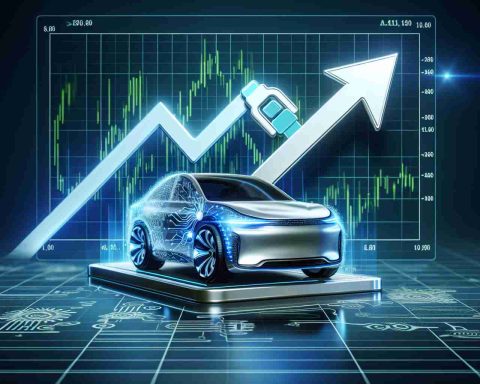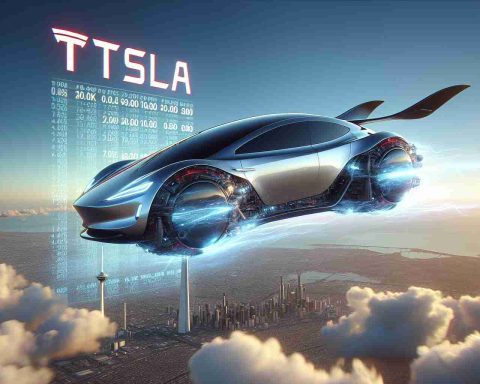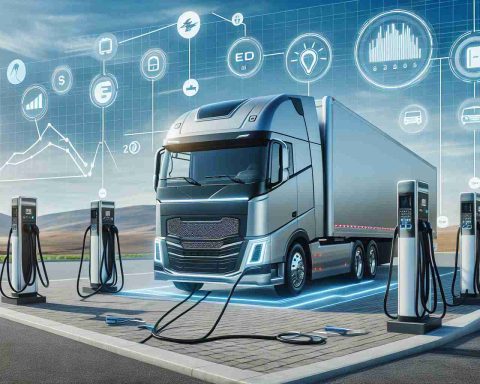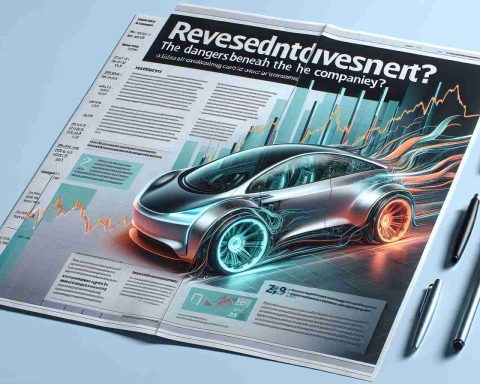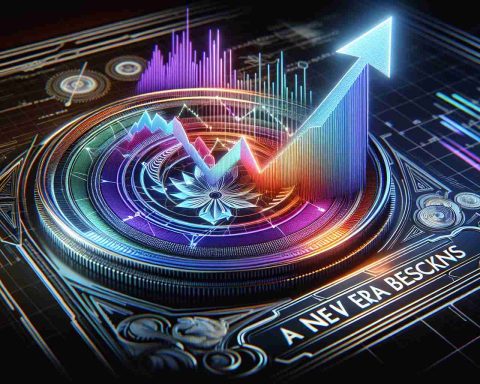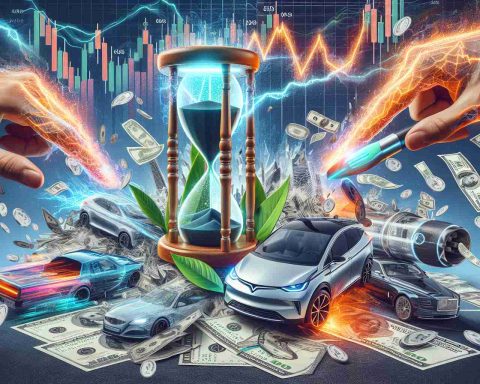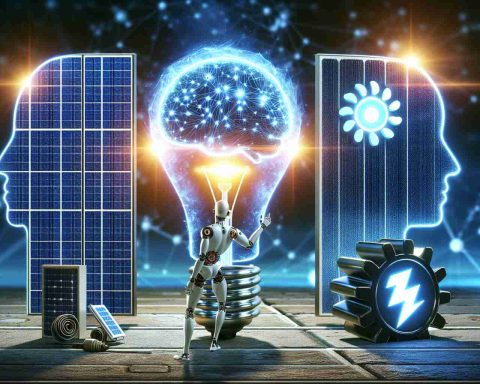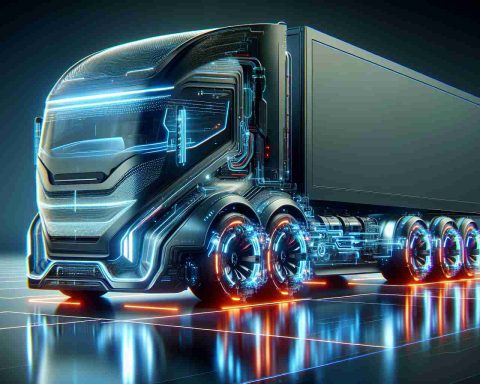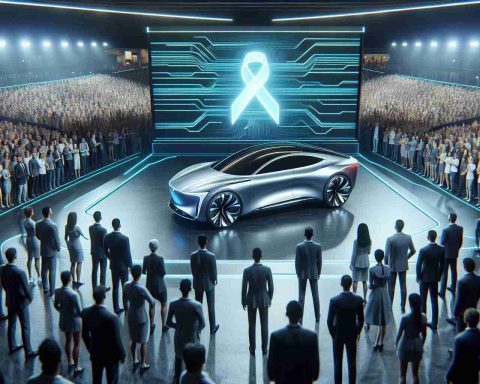The Struggle of Lion Electric Co.
Lion Electric Co., an electric bus and truck manufacturer based in Saint-Jerome, Quebec, finds itself in a precarious situation as it announces plans to seek creditor protection. This decision comes after the company experienced a significant drop in its market value, plummeting from $4.2 billion in 2021 to just $57 million by December 16, 2023.
The troubles began when Lion revealed the expiration of covenants on a crucial credit line and the impending maturity of an additional loan, with no viable alternatives appearing. Consequently, the firm plans to undergo a restructuring process in accordance with Canada’s Companies Creditors Arrangement Act to explore potential sales or investment opportunities for its operations.
Several factors have contributed to Lion’s downturn, including delays in government subsidies and incentives across North America, supply chain interruptions, and challenges related to scaling operations. As a result, the company’s debt has surged to $392 million, primarily due to ambitious expansion projects for electric bus manufacturing and battery assembly.
Despite once boasting a workforce of approximately 1,400 employees, Lion has now reduced its staff to about 300, halting work at its Joliet facility. The urgency of the situation has prompted discussions with lenders for additional funding to stay afloat. Notably, the Quebec government has already invested C$177 million in Lion, underlining the importance of this endeavor to the region’s electric vehicle ambitions.
Lion Electric Co.: Navigating Challenges and Future Prospects
Overview of Lion Electric Co.
Lion Electric Co., headquartered in Saint-Jerome, Quebec, specializes in manufacturing electric buses and trucks. Despite its innovative contributions to the electric vehicle (EV) sector, the company is currently facing severe financial difficulties that have necessitated seeking creditor protection.
Current Challenges
The company recently announced plans to initiate a restructuring process under Canada’s Companies Creditors Arrangement Act. This decision follows a dramatic drop in its market value, which fell from $4.2 billion in 2021 to approximately $57 million by mid-December 2023. Key factors contributing to this decline include:
– End of Credit Covenants: The expiration of key covenants on a credit line has exposed Lion to significant financial strain.
– Imminent Loan Maturity: The pending maturity of a sizable loan has further complicated financial stability.
– Government Support Delays: Holdups in receiving government subsidies meant to boost electric vehicle manufacturing have hampered operations.
– Supply Chain Issues: Interruptions in supply chains have affected the timely production of vehicles.
– Scaling Challenges: Difficulty in scaling operations in response to market demands has led to operational inefficiencies.
Financial Impact and Workforce Reduction
The cumulative effect of these challenges has resulted in a staggering debt of $392 million, primarily attributed to aggressive expansion plans that were not matched by sales growth. Consequently, Lion has slashed its workforce from about 1,400 to roughly 300 employees and suspended operations at its Joliet facility, a former hub for bus production.
Government and Investor Interest
The Quebec government’s previous investment of C$177 million underscores the significance of Lion Electric Co. to the regional economy and its commitment to promoting electric vehicle initiatives. As part of the restructuring process, discussions with current lenders are ongoing, aiming to secure additional funding necessary for recovery and future growth.
Looking Ahead: Prospects and Innovations
Despite the current struggles, Lion Electric Co. operates in a market with tremendous potential, given the global shift towards sustainable transportation solutions. The demand for electric buses and trucks is on the rise, and with continued investments, there is hope for a turnaround.
# Features of Lion Electric’s Products:
– Zero Emissions: The company’s electric vehicles are designed to have no tailpipe emissions, supporting environmental goals.
– Cost Efficiency: Long-term operation costs for electric buses can be lower than traditional diesel buses.
– Innovative Technology: Features such as advanced battery management systems and real-time monitoring enhance operational efficiency.
Use Cases for Lion Electric Vehicles
Lion’s electric buses and trucks are particularly suited for:
– Urban Public Transportation: Operating in cities looking to reduce pollution and noise.
– School Transportation: Electric buses are increasingly being adopted for student transport due to their safety and environmental friendly attributes.
– Last-Mile Delivery Services: The compact designs make them ideal for urban delivery routes.
Limitations and Considerations
While Lion Electric has made strides in the electric vehicle market, it faces limitations such as:
– Competition: Rising competition from other EV manufacturers could impact market share.
– Regulatory Changes: Future shifts in government policy regarding subsidies can influence profitability.
– Technological Advancements: Keeping pace with rapid technological developments in battery and vehicle design is crucial for maintaining competitiveness.
Conclusion
Lion Electric Co.’s current situation is a testament to the volatility and challenges faced by manufacturers in the EV space. With potential recovery earning attention from both governmental support and private investors, the company may still pivot towards a more favorable future. Ultimately, navigating these challenges while leveraging innovative solutions and maintaining financial stability will be vital for revitalizing growth in this increasingly competitive market.
For more insights into the electric vehicle landscape and sustainability efforts, visit Electrek for the latest news and trends.



